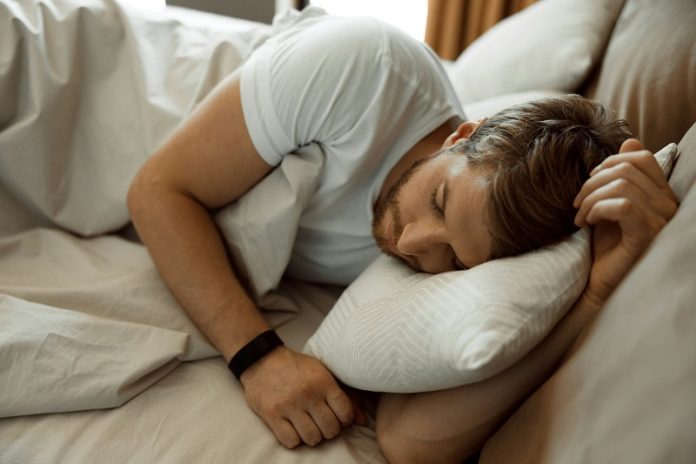
A new study suggests that getting fewer than seven hours of sleep each night is linked to a higher risk of developing high blood pressure over time.
The research, presented at the American College of Cardiology’s Annual Scientific Session, analyzed data from 16 studies involving over one million people across six countries.
None of the participants had a history of high blood pressure when the study began, and they were followed for an average of five years.
The study found that people who regularly slept less than seven hours had a 7% higher chance of developing high blood pressure, while those getting less than five hours of sleep faced an 11% increased risk.
Even after adjusting for factors such as age, sex, education level, body mass index (BMI), smoking, and other cardiovascular risks, the connection between shorter sleep and high blood pressure remained significant.
According to Dr. Kaveh Hosseini, the study’s lead author and assistant professor of cardiology at Tehran Heart Center in Iran, “The less you sleep—especially if it’s less than seven hours a day—the more likely you are to develop high blood pressure in the future.”
While the researchers did observe a slight trend between longer sleep durations and high blood pressure, it wasn’t strong enough to be statistically significant.
For optimal heart health, experts recommend getting between seven and eight hours of sleep per night.
Although factors like smoking and diabetes increase the risk of high blood pressure more dramatically (by at least 20%), the study highlights how lack of sleep can also play a significant role in hypertension.
The researchers noted that disrupted sleep may be linked to other lifestyle habits or health conditions, such as overeating, alcohol consumption, anxiety, depression, and sleep apnea, all of which can negatively affect blood pressure.
Interestingly, the study found that women who slept less than seven hours had a slightly higher risk of developing high blood pressure than men.
While the difference was statistically significant, the researchers are not sure if it’s clinically significant, meaning more research is needed to confirm the impact of sleep deprivation on women’s health specifically.
The study did have some limitations. Sleep duration was self-reported by participants through questionnaires, meaning it wasn’t tracked with more precise methods.
Additionally, sleep duration was defined differently across studies, which could affect the results.
Dr. Hosseini emphasized that future research should use more accurate methods like polysomnography (a detailed sleep test) to better understand how sleep affects blood pressure.
Overall, the findings suggest that getting enough sleep is not just important for your overall well-being but could also help reduce your risk of high blood pressure, heart disease, and stroke.
If you’re having trouble sleeping, it’s important to talk to your healthcare provider, especially if sleep apnea or other sleep disorders might be involved.
If you care about high blood pressure, please read studies that early time-restricted eating could help improve blood pressure, and natural coconut sugar could help reduce blood pressure and artery stiffness.
For more information about blood pressure, please see recent studies about added sugar in your diet linked to higher blood pressure, and results showing vitamin D could improve blood pressure in people with diabetes.



